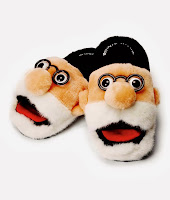Since its launch in late 2000, Cabinet magazine has become a touchstone for a certain approach to understanding culture, one that shuns orthodox distinctions--high/low, serious/humorous, professional/amateur--in favor of a commitment to the idea that all objects, practices and discourses can, if read against the grain, teach us something important about the world. Its hybrid sensibility merges the visually engaging style of an arts periodical, the exuberance of a fanzine and the in-depth exploration of a scholarly journal to create a sourcebook of ideas for an international audience of readers, from artists and designers to scientists, philosophers and historians. Using essays, interviews and artist projects to present a variety of topics in language accessible to the non-specialist, Cabinet has aimed to encourage a new culture of curiosity. This anthology brings together some of the most interesting successes, and a few instructive failures, published in the first 40 issues of Cabinet, virtually all of which are sold out, along with essays specially commissioned for the volume.
A succinct statement on curiosity by Michel Foucault that sums up Cabinet's mission better than we can
Curiosity is a new vice that has been stigmatized in turn by Christianity, by philosophy, and even by a certain conception of science. Curiosity, futility. The word, however, pleases me. To me it suggests something altogether different: it evokes "concern"; it evokes the care one takes for what exists and could exist; a readiness to find strange and singular what surrounds us; a certain relentlessness to break up our familiarities and to regard otherwise the same things; a fervor to grasp what is happening and what passes; a casualness in regard to the traditional hierarchies of the important and the essential.
I dream of a new age of curiosity. We have the technical means for it; the desire is there; the things to be known are infinite; the people who can employ themselves at this task exist. Why do we suffer? From too little: from channels that are too narrow, skimpy, quasi-monopolistic, insufficient. There is no point in adopting a protectionist attitude, to prevent "bad" information from invading and suffocating the "good." Rather, we must multiply the paths and the possibilities of coming and goings.
Michel Foucault, "The Masked Philosopher"
It includes contributions by more than a hundred writers and artists, including Jonathan Ames, Alain Badiou, Daniel Birnbaum, Matthew Buckingham, D. Graham Burnett, Paul Collins, Simon Critchley, Lorraine Daston, Mark Dery, Brian Dillon, Jeff Dolven, Spencer Finch, Joshua Foer, Leon Golub, Douglas Gordon, Anthony Grafton, Joseph Grigely, Shelley Jackson, Denis Johnson, Wayne Koestenbaum, Jonathan Lethem, Josiah McElheny, Helen Mirra, Albert Mobilio, Alexander Nagel, Francine Prose, Matthew Ritchie, Daniel Rosenberg, Luc Sante, Christopher Turner, Tom Vanderbilt, Marina Warner, Slavoj Zizek and many others.
See also





